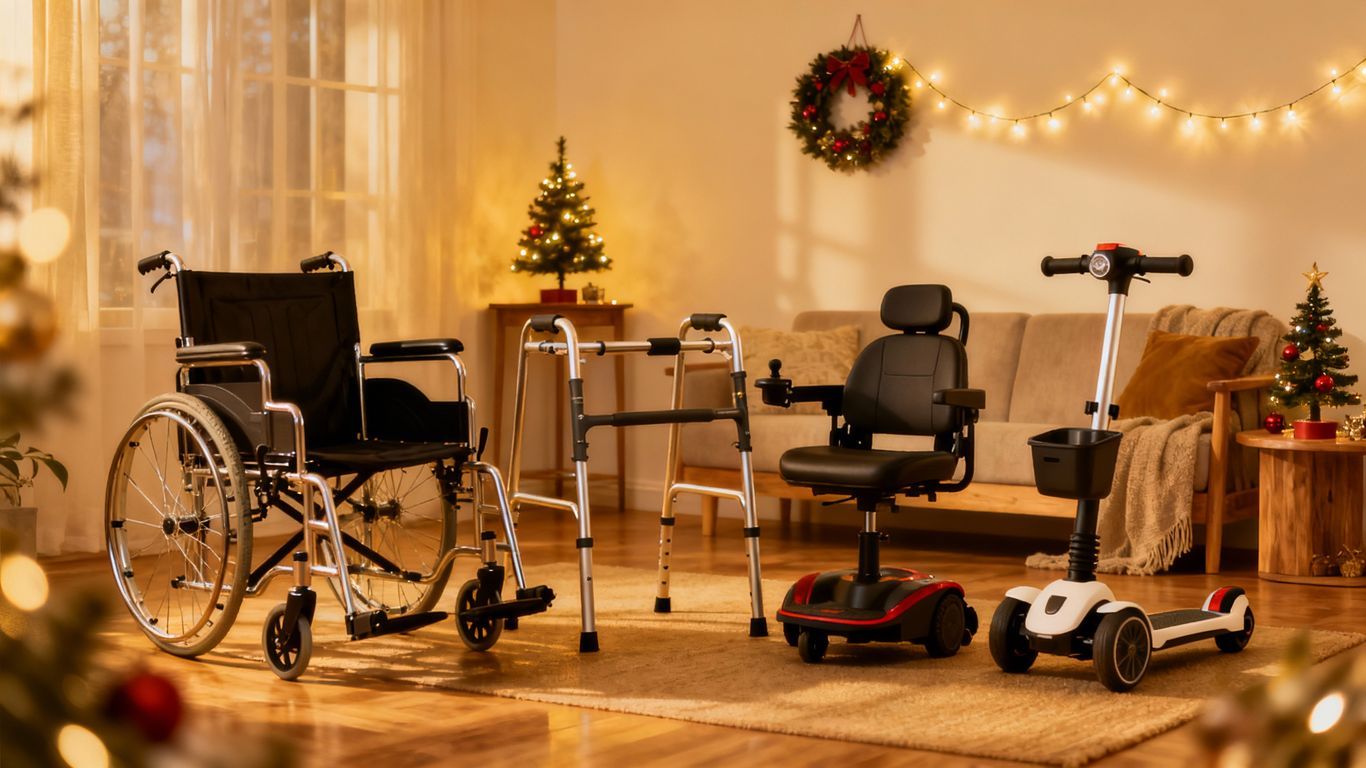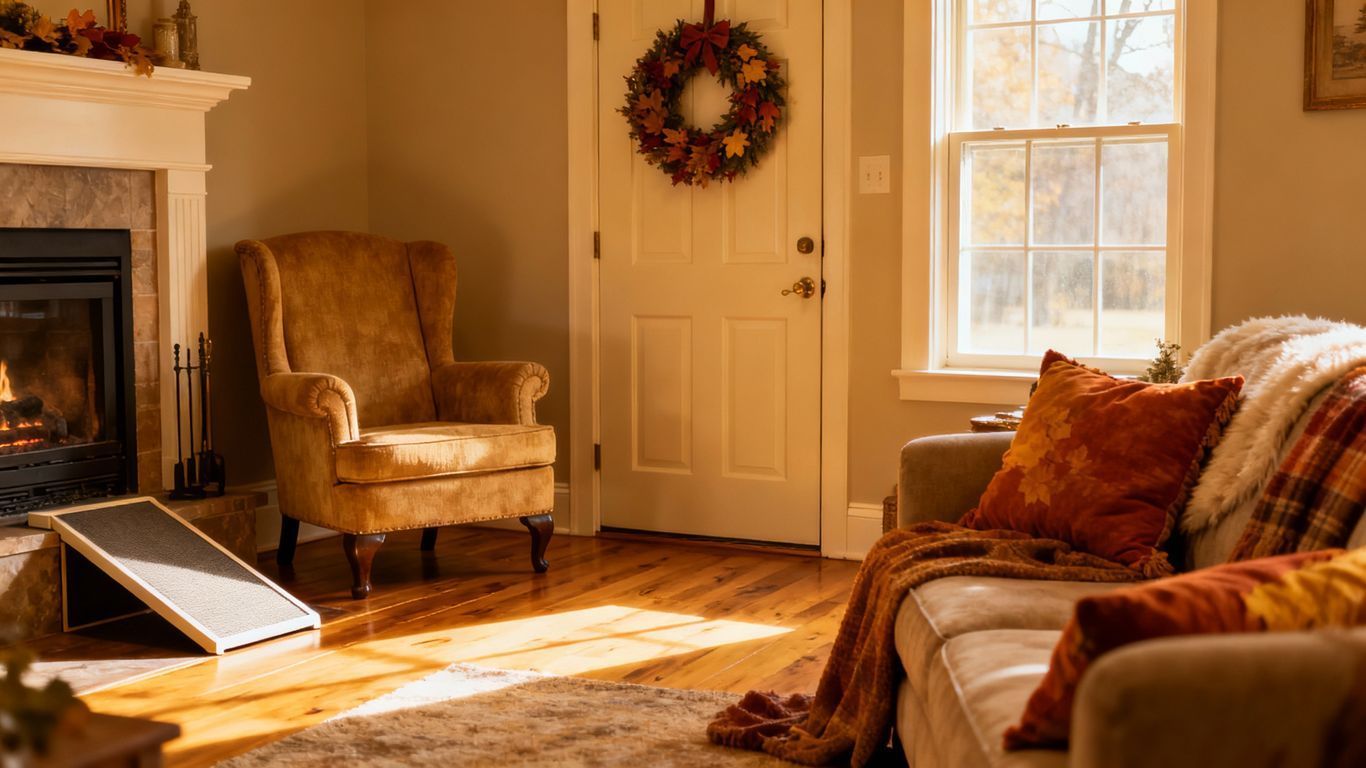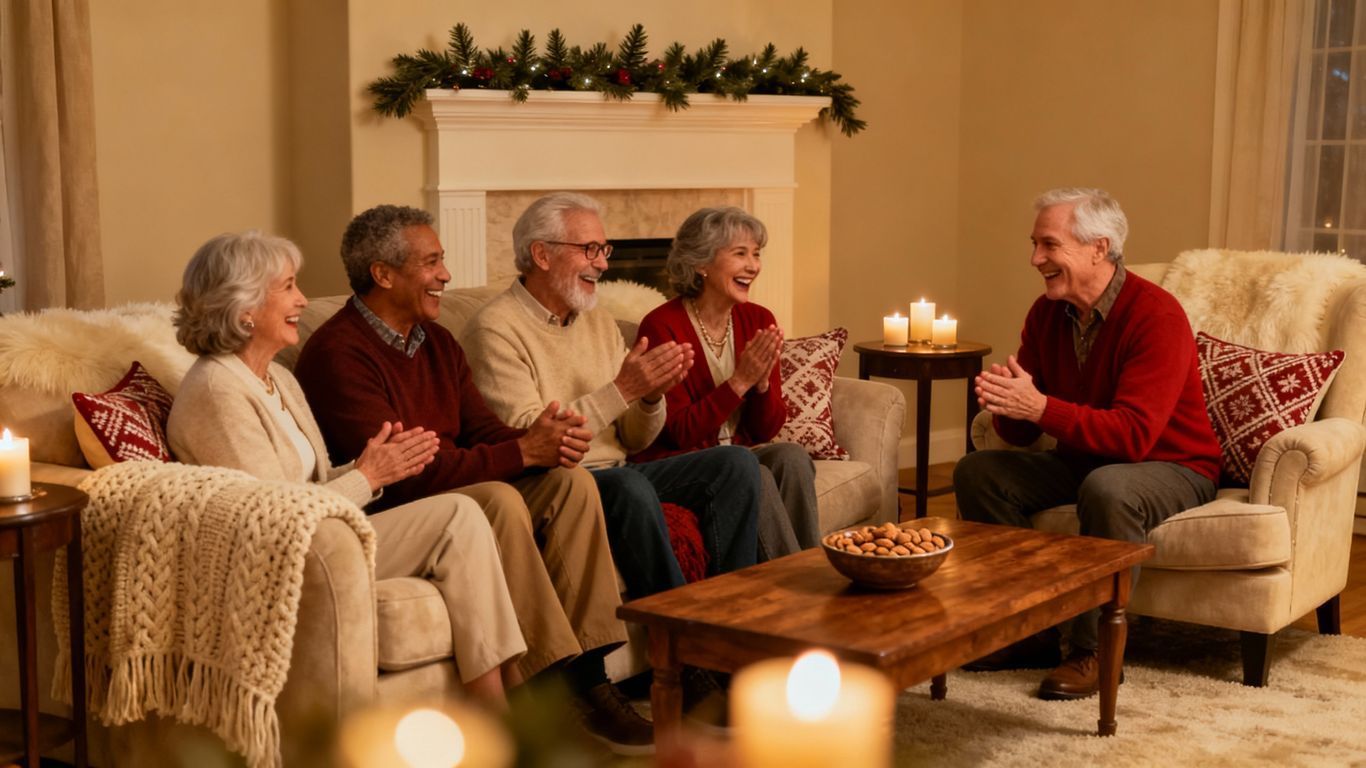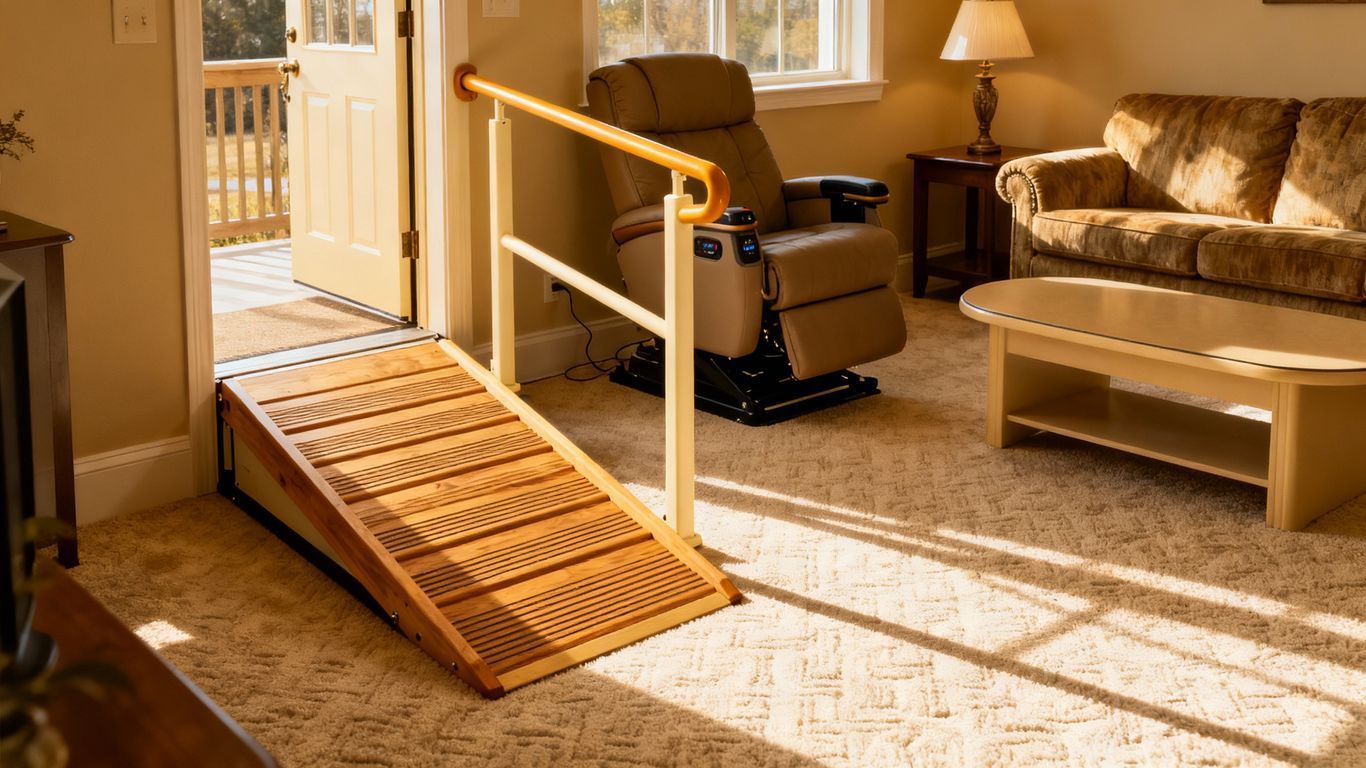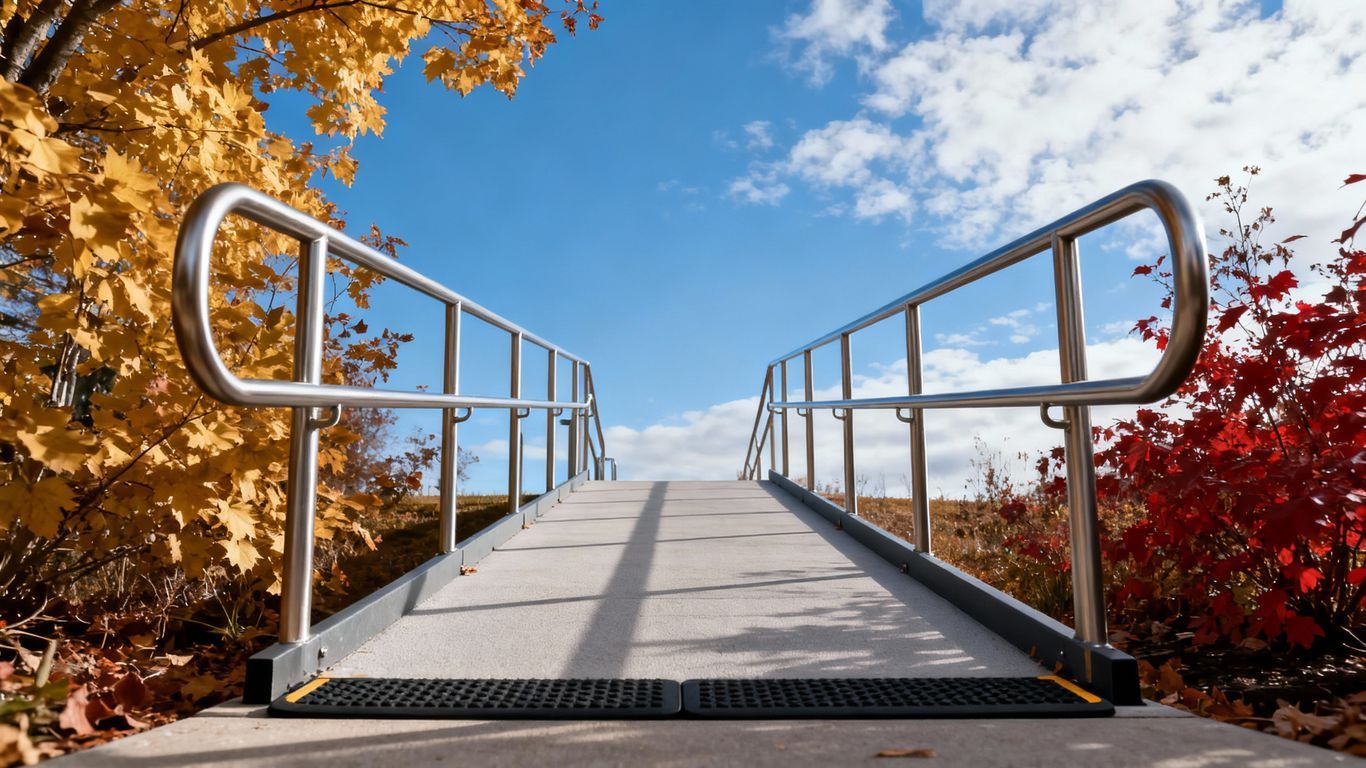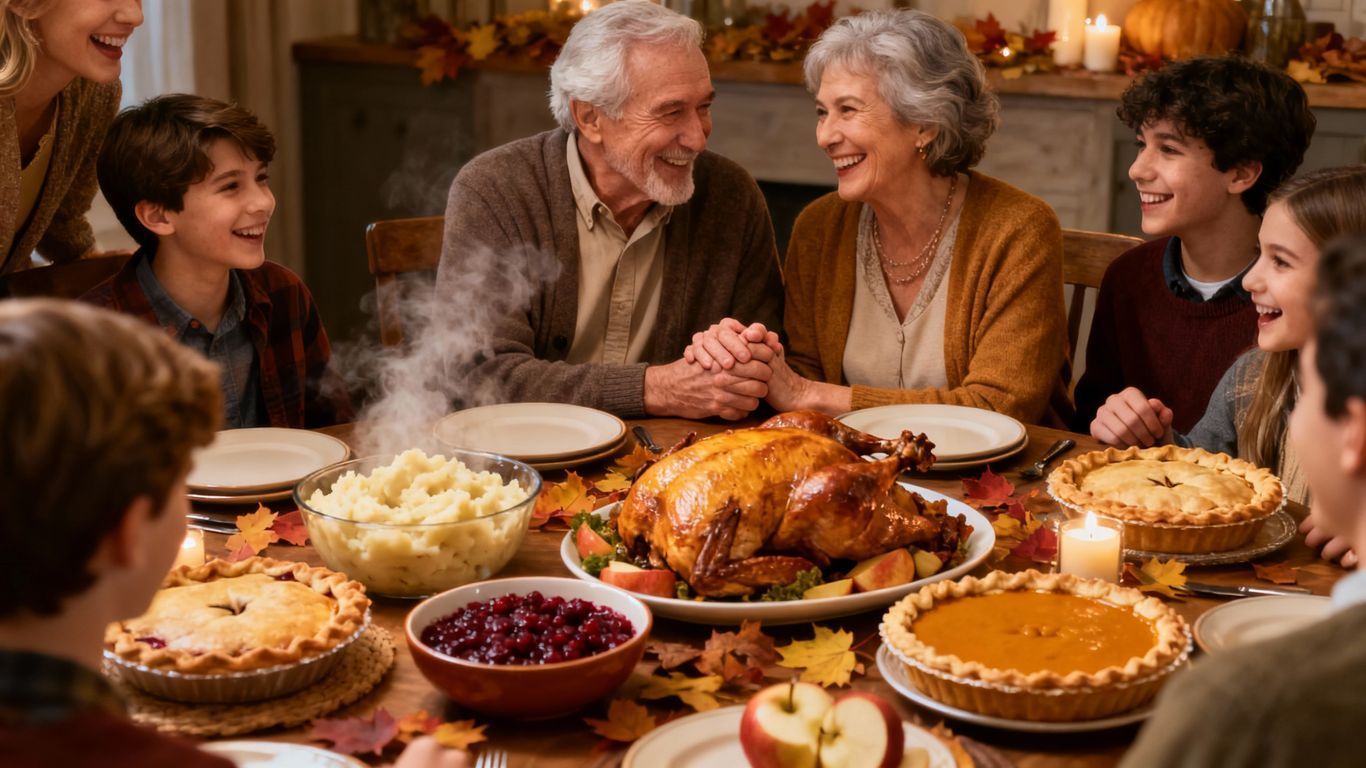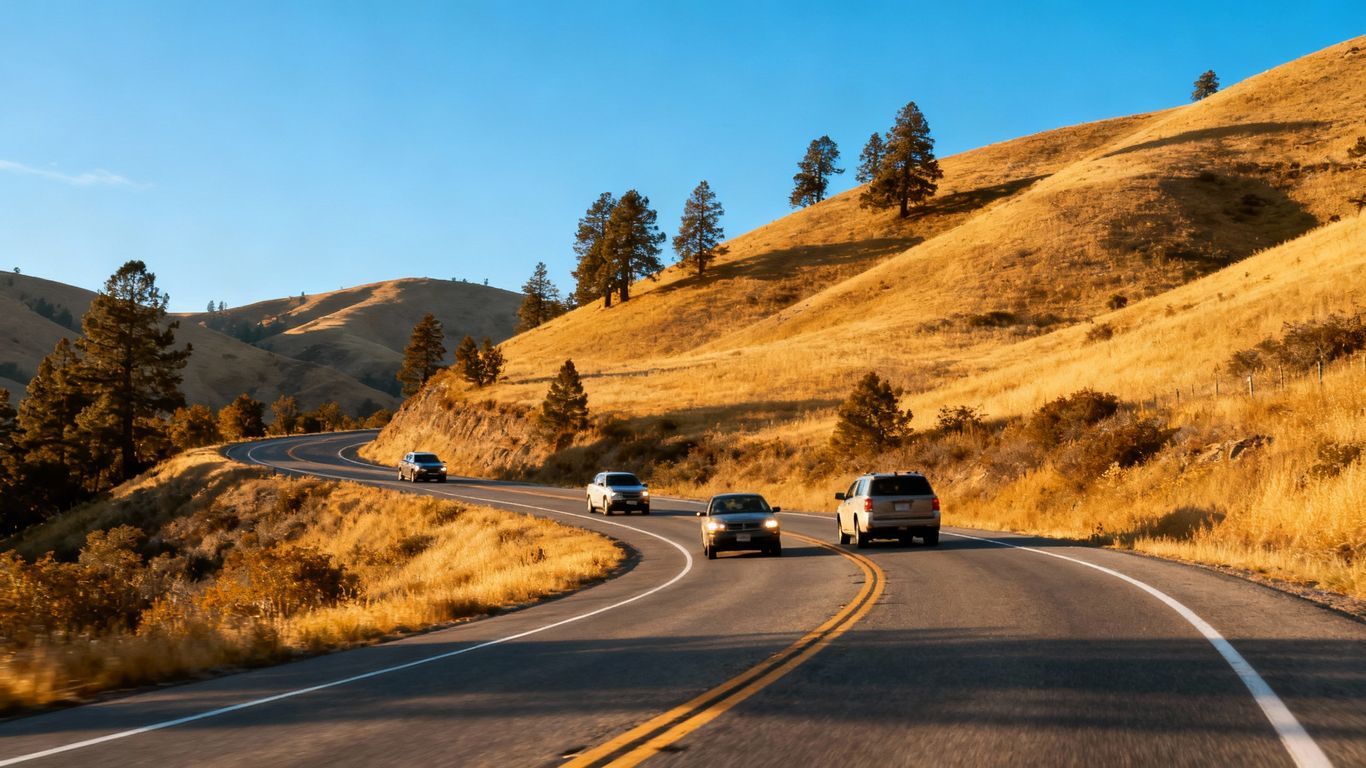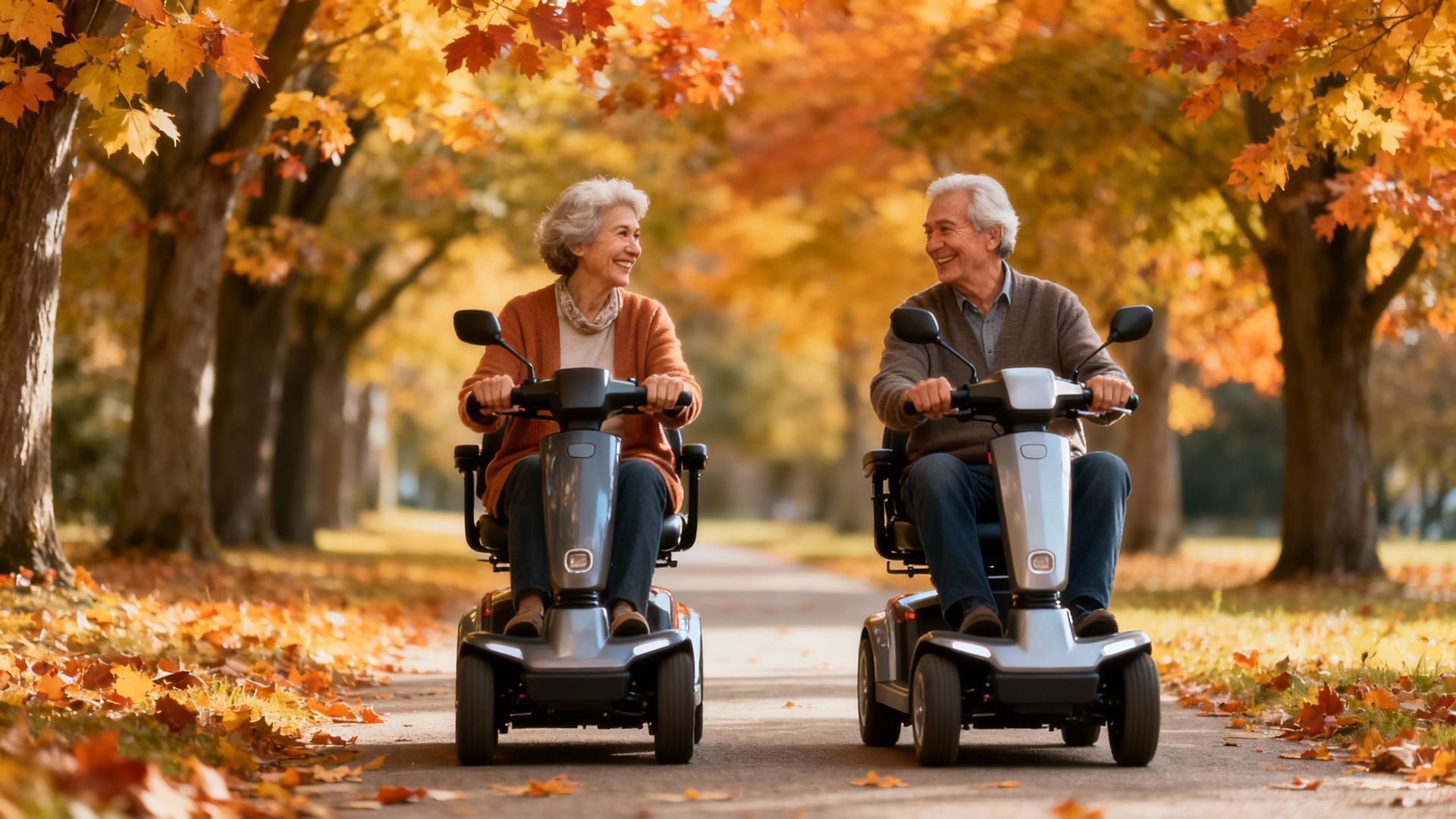How to Make Your Home Safer Before Winter in LaFayette, Dalton, Chickamauga & Ringgold

Winter's chill is just around the corner for LaFayette, Dalton, Chickamauga, and Ringgold. Before the cold really sets in, it's a good idea to do a quick check of your home. This isn't just about keeping the house warm; it's also about making sure everyone, especially older adults, stays safe and comfortable. We'll go through some simple steps to get your home ready, covering everything from the outside of your house to what's inside, so you can relax when the snow starts to fall.
Key Takeaways
- Check your home's outside: Clean out gutters and look for any cracks on the walls. Also, trim any tree branches that hang over your roof.
- Make sure your heating works: Get your furnace looked at by a pro, test your carbon monoxide alarms, and swap out old air filters for new ones.
- Stop pipes from freezing: Add insulation to pipes that are out in the open and disconnect any garden hoses. Know where your main water shut-off valve is, just in case.
- Help seniors stay safe inside: Add grab bars in the bathroom, make sure lights are bright, and get rid of things like rugs that can cause trips.
- Get emergency items ready: Put together a kit for winter storms, stock up on food and water, and keep your phone charged.
Prepare Your Home's Exterior For Winter Weather
Winter weather can be tough on your home's exterior. Taking some time now to get things in order can save you a lot of headaches later. It's all about preventing damage before it happens.
Clear Gutters And Downspouts
Clogged gutters are a real problem when the cold hits. If they're full of leaves and debris, water can't drain properly. This can lead to ice dams forming on your roof, which can cause water to back up and seep into your home. Plus, the extra weight from ice and water can actually pull your gutters away from the house. So, grab a ladder and get up there.
- Remove all leaves, twigs, and any other gunk.
- Make sure downspouts aren't blocked. You might need to flush them out with a hose.
- Check for any loose or damaged sections of the gutter system.
Inspect And Seal Exterior Cracks
Think of all those little cracks and gaps that show up on your home's exterior over time. When winter rolls around, water gets into these openings, freezes, and then expands. This freeze-thaw cycle can make those small cracks much bigger, leading to more serious damage. It's a good idea to go around your house and look for any openings, especially around windows, doors, and where different materials meet.
Sealing these up now with caulk or appropriate sealant will keep the cold air out and stop water from getting in where it shouldn't. It's a simple step that makes a big difference in keeping your home warm and dry.
Trim Overhanging Branches
Branches that hang over your roof or near your house can be a hazard when winter storms hit. Heavy snow or ice can cause them to break, potentially falling on your roof, car, or even your home. It's also a good idea to trim branches that are close to power lines. If you're not comfortable doing this yourself, it's definitely worth calling a professional tree service. You can find local services that can help with home modifications if needed.
Ensure Heating System Reliability
Winter's chill is no joke around here, and the last thing you want is your heating system giving up the ghost when the temperatures drop. Making sure your furnace is in good shape before the cold really sets in is a smart move. It's not just about staying warm; it's about safety too. A well-maintained system runs more efficiently, which can save you some money on those energy bills, and it helps prevent those nasty breakdowns that always seem to happen on the coldest night of the year.
Schedule Professional Furnace Maintenance
This is probably the most important step. Think of it like taking your car in for an oil change. A qualified technician will give your furnace a thorough once-over. They'll check all the important bits and pieces, clean out any dust or gunk that's built up, and make sure everything is running smoothly and safely. They can spot small problems before they turn into big, expensive ones. It's worth the peace of mind, honestly.
Test Carbon Monoxide Detectors
This is non-negotiable. Carbon monoxide is a silent killer, and your furnace is a potential source if it's not working right. You need to know your detectors are actually working. Most have a test button – push it! Also, check the expiration date on the detector. They don't last forever, and a dead detector is about as useful as a screen door on a submarine.
Check and Replace Air Filters
This is a simple one you can do yourself. A dirty air filter makes your furnace work harder, which isn't good for it or your wallet. It also means you're breathing in dust and allergens. Check your filter monthly and swap it out when it looks grimy. Most filters are pretty easy to find and replace. It makes a difference, trust me.
A heating system that's struggling to keep up can lead to uneven heating throughout your home, leaving some rooms uncomfortably cold while others might be too warm. This inefficiency not only impacts comfort but also drives up energy consumption. Regular checks help maintain consistent temperatures and prevent the strain that causes breakdowns.
Prevent Frozen Pipes And Water Damage
Winter weather can bring some serious headaches, and one of the biggest is dealing with frozen pipes. Nobody wants to wake up to a burst pipe and a flooded home, especially when it's cold outside. Taking a few steps now can save you a lot of trouble later.
Insulate Exposed Pipes
Think about where your pipes are most vulnerable. These are usually the ones in unheated areas like basements, crawl spaces, attics, or even garages. You can buy special foam sleeves or fiberglass insulation wrap from your local hardware store. It's pretty straightforward to install – just cut the material to size and wrap it around the pipes, securing it with tape. This simple step can make a big difference in preventing water from freezing inside. For really cold areas, you might even consider using heat tape, which is an electric cable that warms the pipes.
Disconnect Outdoor Hoses
Don't forget about the water connections outside your house. Any hoses left attached can trap water, which then freezes and expands, potentially damaging the faucet or even the pipe leading to it. So, make sure to disconnect all garden hoses, drain them thoroughly, and store them somewhere dry for the winter. It’s also a good idea to shut off the water supply to any outdoor spigots if they have separate shut-off valves inside your home.
Know How to Shut Off Water Supply
This is one of those things you hope you never have to do, but it's really important to know where your main water shut-off valve is. If a pipe does burst, shutting off the water quickly is the first thing you need to do to minimize damage. It's usually located where the water pipe enters your home, often in the basement, a utility closet, or a crawl space. Take a moment to locate it and make sure it's accessible. You might even want to label it so there's no confusion in an emergency.
Dealing with water damage can be a real pain, not to mention expensive. A little bit of preventative work before the cold really sets in can save you from a much bigger problem down the line. It's all about being proactive rather than reactive when it comes to your home's plumbing during the winter months.
Enhance Indoor Safety For Home Safety For Seniors Before Winter
Winter weather can bring extra challenges, especially for seniors. Making a few smart adjustments inside your home can make a big difference in keeping everyone safe and comfortable. It’s all about preventing slips, falls, and other accidents that can happen more easily when it’s cold and icy outside.
Install Grab Bars In Bathrooms
Bathrooms are often the most slippery spots in the house, and a fall in the bathroom can be serious. Adding grab bars in key areas can provide much-needed stability. Think about installing them:
- Next to the toilet for easier sitting and standing.
- Inside and outside the shower or bathtub for getting in and out safely.
- Along the wall in the shower for extra support while bathing.
These aren't just for people with existing mobility issues; they offer peace of mind for anyone who might feel a bit unsteady. You can find a variety of options, from simple screw-in bars to more permanent fixtures, and getting them installed is a straightforward process. For local help with accessibility solutions, consider looking into places that specialize in home modifications.
Improve Lighting Throughout The House
Dim lighting can hide hazards and make it harder to see where you're going, especially during the shorter days of winter. Good lighting is key to preventing trips and falls. Make sure:
- Hallways and staircases are well-lit. Consider motion-sensor lights for areas that are used less frequently.
- Entryways, both inside and out, have bright lights. This helps with visibility when coming and going.
- Bedrooms and living areas have adequate lighting for reading or other activities.
Think about switching to brighter bulbs or adding more lamps. Nightlights can also be a lifesaver, providing a soft glow in hallways, bathrooms, and bedrooms so seniors can move around safely in the dark without needing to turn on bright overhead lights.
Secure Rugs And Remove Trip Hazards
Loose rugs and clutter are major culprits when it comes to household falls. Take some time to go through your home and identify potential tripping hazards.
- Secure all area rugs. Use non-slip rug pads underneath them, or consider using double-sided tape to keep them flat and in place. If a rug is too worn or curled up, it might be best to just get rid of it.
- Clear pathways. Make sure furniture is arranged so there are clear, unobstructed paths to walk through rooms. Keep electrical cords tucked away and out of the way.
- Tidy up. Put away items that are frequently left out, like shoes, bags, or mail. A little bit of tidying can go a long way in preventing accidents.
Winterizing your home isn't just about the outside. Inside, small changes can make a huge difference in daily safety. Focusing on areas where falls are more likely, like bathrooms, and improving visibility with better lighting are smart steps. Taking a look at common tripping hazards like rugs and clutter can prevent a lot of trouble before it starts. It’s about creating a secure and comfortable environment for everyone, especially as the weather gets colder and days get shorter.
Making these indoor adjustments can help seniors maintain their independence and feel more secure in their homes throughout the winter months. It’s a proactive approach to safety that pays off big time. home accessibility solutions can be a great resource for finding the right products and advice.
Stock Up On Emergency Supplies
Winter weather can be unpredictable, and being prepared is key to staying safe and comfortable. Having a well-stocked emergency kit and supplies can make a big difference if you lose power or face other winter challenges. It's not just about having a few candles; it's about having a plan and the right items to see you through any unexpected situation.
Prepare A Winter Emergency Kit
Think of this as your go-bag for winter. It should contain items to keep you warm, fed, and informed if you're stuck at home without power. Here’s what to consider:
- Warmth: Blankets, extra layers of clothing, hats, and gloves. Don't forget extra socks!
- Light: Flashlights with extra batteries, and perhaps a battery-powered lantern. Avoid relying solely on candles due to fire risk.
- Communication: A battery-powered or hand-crank radio to stay updated on weather and emergency information. A fully charged cell phone is also a must.
- First Aid: A well-stocked first-aid kit for minor injuries.
- Tools: A basic toolkit, a manual can opener, and a multi-tool can be surprisingly useful.
Having these items ready means you won't be scrambling when the first cold snap hits. It's about peace of mind, knowing you've got the basics covered.
Ensure Food And Water Stockpile
When winter storms hit, getting to the grocery store can become difficult, if not impossible. It's wise to have a supply of non-perishable food and water on hand.
- Water: Aim for at least one gallon of water per person per day for several days. Don't forget water for pets too.
- Food: Stock up on items that don't require refrigeration or much cooking. Think canned goods (soups, vegetables, fruits, meats), peanut butter, crackers, granola bars, and dried fruit. Make sure you have a way to heat food if your power goes out, like a camp stove or a grill (used safely outdoors, of course).
- Comfort Foods: Don't forget a few treats like hot chocolate mix or cookies. Morale is important during tough times.
Maintain A Charged Cell Phone
In any emergency, communication is vital. Your cell phone is your lifeline to family, friends, and emergency services. Make sure it's always ready to go.
- Keep it Charged: Get into the habit of charging your phone fully every night, especially during winter. Consider a portable power bank or a car charger so you can charge your phone even if the power is out.
- Emergency Contacts: Save important phone numbers, including emergency services and family members, in your phone and perhaps write them down somewhere accessible too.
- Low Power Mode: Learn how to activate your phone's low power mode to conserve battery life if you need to stretch it out.
Getting ready for unexpected events is smart. Make sure you have all the essentials, like food, water, and first-aid items, stored safely. Don't wait until the last minute to prepare. Visit our website today to find the best deals on emergency supplies and ensure your family is safe. Check out our wide selection of emergency kits to get started!
Get Ready for Winter, Folks!
So, we've gone over a bunch of ways to get your home ready for the cold months ahead in LaFayette, Dalton, Chickamauga, and Ringgold. It might seem like a lot, but taking these steps now can save you headaches later. Think about it – a little bit of work now means a warmer, safer winter for you and your family. And hey, if you're thinking about making your home or vehicle more accessible, especially with winter coming, places like North Georgia Mobility have been helping folks out for years. They really know their stuff when it comes to making life easier. Don't wait until the first freeze hits; get these tasks done and enjoy a cozy winter!
Frequently Asked Questions
Why is it important to clean my gutters before winter?
Cleaning your gutters and downspouts is super important! If they get clogged with leaves and gunk, rainwater can't flow away from your house. This can cause water to back up, freeze, and damage your roof, walls, and even your foundation. Keeping them clear helps prevent ice dams and water leaks.
How often should I get my heating system checked?
It's a smart idea to have your furnace or heating system looked at by a professional at least once a year, ideally before it gets really cold. This tune-up helps make sure it's running safely and efficiently, so you won't have to worry about it breaking down when you need it most. Plus, it can help save you money on energy bills!
What's the best way to stop my pipes from freezing?
To keep your pipes from freezing, you can wrap any pipes that are in cold places, like basements or crawl spaces, with special insulation. Also, make sure to disconnect and drain any garden hoses outside. If a really cold snap is coming, you might even want to let a faucet drip a little bit – the running water makes it harder to freeze.
Are there any special safety tips for seniors during winter?
Yes, definitely! For seniors, making sure the house is easy to get around is key. Think about adding grab bars in the bathroom for extra support, making sure all the lights are bright enough to see clearly, and getting rid of any rugs or cords that could cause someone to trip. These small changes can make a big difference in preventing falls.
What should I keep in my winter emergency kit?
A good winter emergency kit should have essentials like blankets, a first-aid kit, flashlights with extra batteries, a battery-powered radio, and maybe some non-perishable food and water. It's also smart to have things like a portable phone charger, extra warm clothes, and any necessary medications. This way, you're prepared if the power goes out or you get stuck.
Where can I find help with home accessibility for winter?
If you're looking for ways to make your home more accessible, especially for seniors or those with mobility challenges, companies like North Georgia Mobility can help. They offer solutions for vehicle conversions and home modifications to make your living space safer and easier to navigate. They've been doing this for a long time and can give you great advice.
